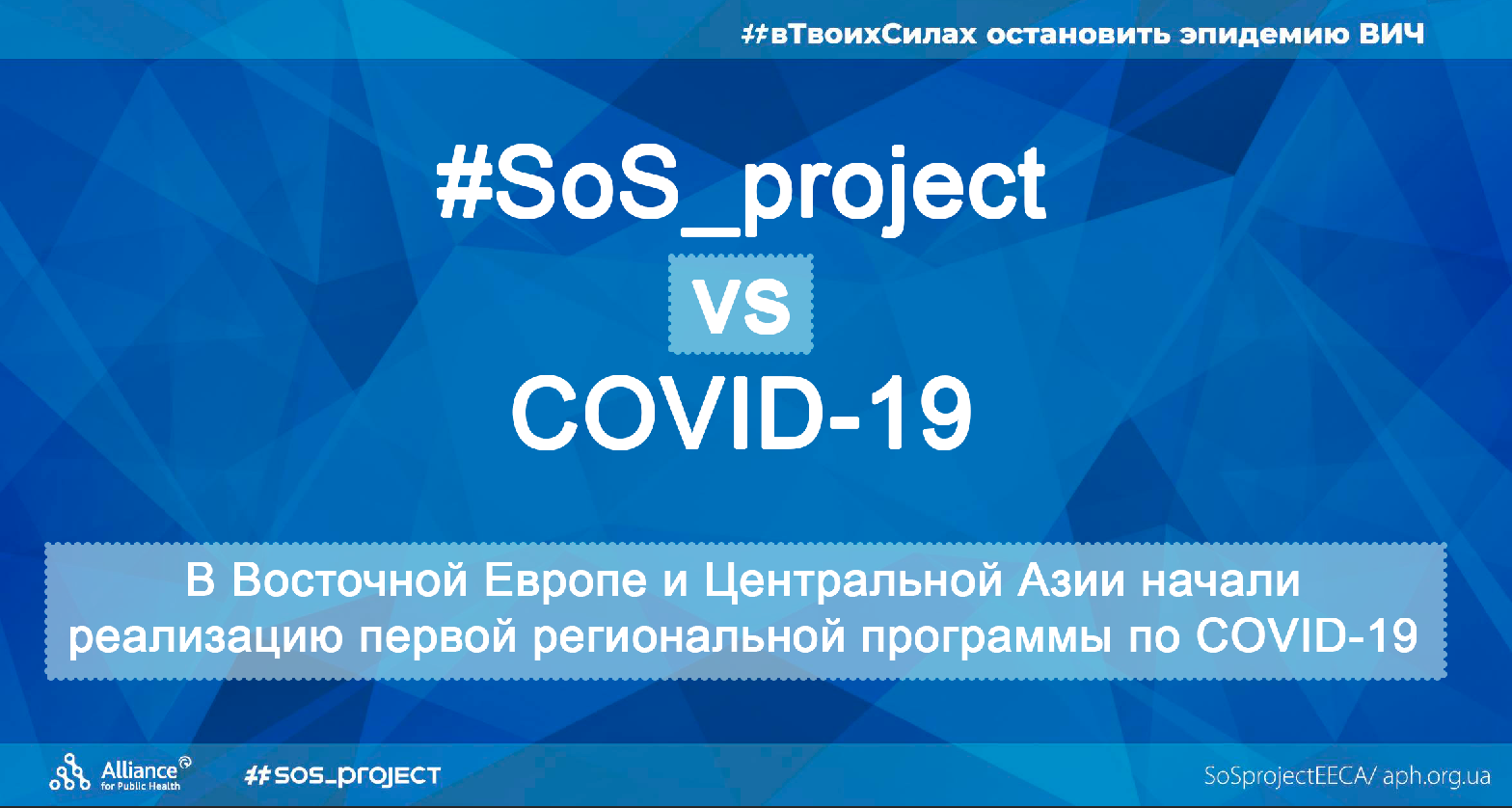The Alliance for Public Health has launched the first regional COVID-19 program funded by the Global Fund to Fight AIDS, Tuberculosis and Malaria. The budget is $500,000. The implementation of activities is designed for 8 months: from November 1, 2020 to June 30, 2021.
The COVID-19 program will be coordinated by the #SoS_project team in 14 countries of Eastern Europe and Central Asia at the regional level with a national focus on countries not receiving grants from the Global Fund – Bosnia and Herzegovina, as well as Russia.
“It was obvious to us that the countries of the EECA region urgently need additional support. Primarily to help them maintain the advancements of HIV/TB programs that are at risk because of COVID-19. The effective provision of HIV prevention, diagnosis, treatment, care and support services across the region must continue,” said Tatiana Vinichenko, Portfolio Manager at the Global Fund. – Therefore, the decision to initiate special funding in connection with COVID-19 for operational activities in the countries was extremely necessary. And the regional program will allow us to provide support for regional initiatives and national initiatives in several countries at once”.
Note that the volume of government funding for HIV services among key populations and people living with HIV was extremely insufficient in the EECA region at the beginning of 2020. With the COVID-19 outbreak, which rocked the entire world, all countries began to revise their budgets, prioritizing measures against COVID-19. This has jeopardized many years of work to build the sustainability of HIV services across the region.
“The support of the Global Fund has played a critical role in the immediate response to the COVID-19 problem,” says Sergey Filippovych, director of the #SoS_project at the Alliance for Public Health. “At the same time, there are countries in the EECA region that do not receive financial support from the Global Fund. They do not have national grants, and they are even more vulnerable, which negatively affects the response to epidemics. Therefore, our team decided to support these countries and ensure the allocation of funding for critical events through the Global Background regional grant mechanism. ”
Based on the analysis of the epidemiological situation, the latest technical guidelines and assessments available, as well as the existing funding structure, problem areas were identified in programs to ensure the sustainability of programs and HIV in EECA countries related to the COVID-19 problem. These are the areas that have been selected as the focus of the regional COVID-19 program:
- The continuity of HIV services in the cities of the Russian Federation and Bosnia and Herzegovina; simplification and increasing availability of services
- Respect for human rights, gender equality for representatives of key groups in response to COVID-19
- Contingency planning for sustainable service delivery in EECA countries during and after COVID-19.
In the Russian Federation, the project is supposed to provide services related to HIV and prevention of COVID-19 to at least 2,500 PLHIV and key populations. Masks, gloves, hygiene kits will be purchased for them. It is also planned to install syringe machines and condoms in order to minimize personal contact and reduce the risk of COVID-19 infection.
In Bosnia and Herzegovina, work will focus on establishing and operating a telemedicine systemfor patients who live in remote areas and cannot reach clinics in nearby towns or villages.
At the same time, planning and national approval of COVID-19 related changes in HIV services will be undertaken in all project countries.
A separate focus of the COVID-19 program will be human, community and gender rights, in the context of adaptability and delivery of HIV services, and ensuring sustainable access to services. The geography of monitoring human rights violations using the REAct tool, as well as the work of the partner of the Eurasian Harm Reduction Association, will be expanded and systematized in several more countries of the region. Thus, the closure of borders also led to the interruption of the supply of drugs for substitution therapy to Moldova. This risk exists in other countries as well. In addition, government agencies responsible for OST and harm reduction programs in several countries have not announced a tender for the purchase of drugs or announced the acceptance of bids from civil society organizations providing harm reduction services. This is already a critical situation in Montenegro and Bulgaria.
Note that #SoS_project quite naturally became the main platform for the implementation of measures on COVID-19 as part of the new support program for the region by the Global Fund. Existing partnerships with national partners, knowledge of the region and problems, understanding of financial gaps and opportunities, as well as work on budget advocacy at the national and municipal levels, the #SoS_project team will help strengthen the program and ensure its immediate launch and rapid implementation within 8 months. It is assumed that the services and terms of their provision will continue in the future.

